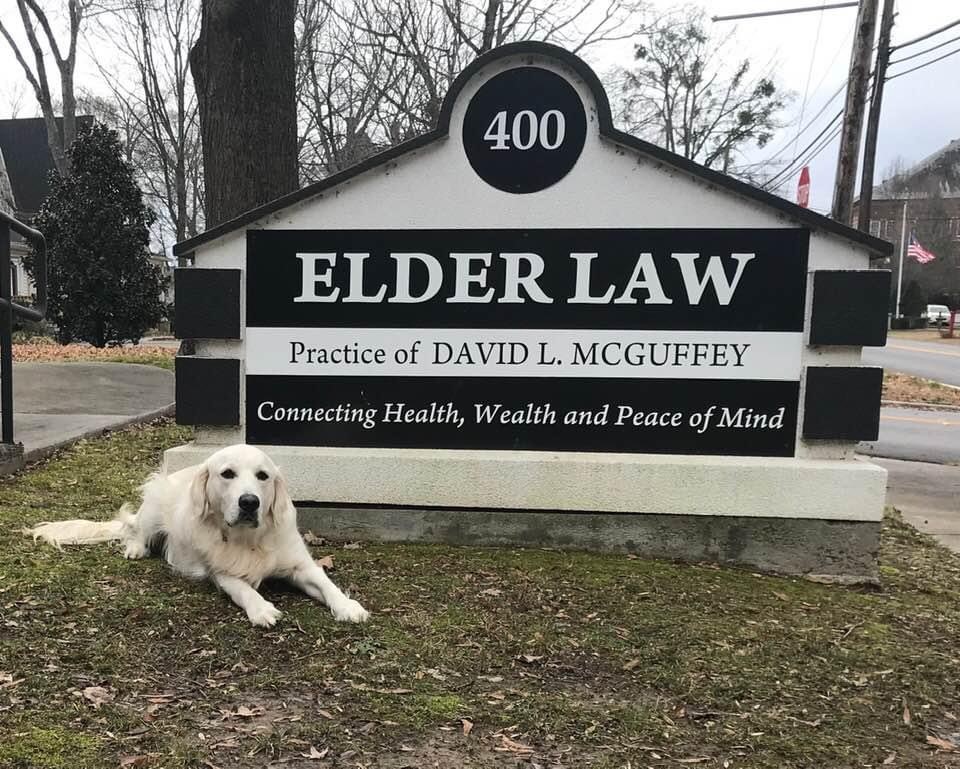This memorandum describes the Medicaid application process so you will better understand what we are doing, why we are doing it, and what assistance we need from you. If you do not provide us with the assistance we need, then your application might be delayed or denied. If you do not understand this memo, or if you are confused regarding the Medicaid application process, please contact our office at (706) 428-0888.
Presently, 36 different Classes of Assistance (COAs) are are listed in the Georgia ABD Medicaid Manual. Each COA has different eligibility rules. In this memo we are focusing on the nursing home and community services program because that’s what most of our clients need. If you need a different class of assistance, this memo may not apply to your situation. We have listed the COAs and the relevant sections of the Georgia ABD Manual at the end of this memo.
1. Timing Issues.
1.1. Covered Services. Medicaid reimburses health care professionals who have a contract with Medicaid and who provided covered services. Therefore, an application cannot be approved unless you received covered services. This means, if you want nursing home Medicaid, we cannot file an application before you are admitted to a nursing home. If you want home and community based services, we cannot file an application until you are screened and approved to receive those services.
1.2. Covered Time Periods. In Georgia, Medicaid eligibility is determined on the first moment of the first day of the month. Therefore, if you are eligible on the first day of this month, we can apply any time during this month and you should have coverage for the entire month. In Georgia, we can also seek retroactive eligibility for up to three months if you were eligible for Medicaid during the prior months.
In Tennessee, Medicaid eligibility can be established at any time during the month, but there is no retroactive eligibility. Therefore, the first date of coverage is the date the application is filed.
1.3. Starting the process/Filing the application. The Medicaid application process begins when Medicaid (DFCS) receives an application. An application must be signed. The date of application is the date the application form is received by the county office, whether in person, or by mail. When received via internet or facsimile, the date of application is the date the form was transmitted.
1.4. How long does it take? The Medicaid program includes certain time limits. The initial time limit is known as the “Standard of Promptness.” That means Medicaid has up to 45 days to approve or deny your application after it is filed. Georgia interprets the Standard of Promptness as running from the date all necessary information is provided, so if Medicaid asks for additional information and if you fail to assist us in providing it, then your application will be delayed. If it is approved, then coverage is retroactive to the date of eligibility. In most cases, an application should be approved within this time frame. (Note: if Georgia is asked to determine disability status, then the Standard of Promptness is 90 days).
If your application is denied and you are not receiving Medicaid, then you have 30 days to appeal the denial. If you do not appeal, then you will not get Medicaid unless you file a new application. If you are currently receiving Medicaid and your renewal is denied, you still have 30 days to appeal, but you only have 10 days to appeal if you want to continue receiving services while your appeal is pending.
If you appeal, it usually takes about 30 days for your appeal to appear on the hearing calendar. Your hearing usually takes place between 2 to 4 weeks after it appears on the calendar. If the administrative law judge hears your case (meaning that your case is not rescheduled), then the administrative law judge will usually issue an opinion within 30 days after the case is heard.
If you are not satisfied with the result from the first hearing, the decision of the administrative law judge can be appealed to the Department of Community Health. That decision can be appealed to the Superior Court. That decision can be appealed to the Georgia Court of appeals. Each additional appeal takes time and costs more money. We are not including detailed information about additional appeals because usually they are not necessary, and because, if it was necessary in your case, we would discuss it with you individually, since they are not covered under our standard fee agreement.
2. Information necessary to file.
Medicaid evaluates eligibility on three levels. First, it looks at categorical criteria such as citizenship. Second, it looks at medical criteria. Finally, it looks at financial eligibility. Although most of our work will center on financial eligibility, it is still critical to provide information covering categorical, medical and financial eligibility.
2.1. Categorical eligibility.
2.1.1. Residency Status. We must have proof that you are a citizen or legally admitted resident alien.
2.1.2. Enumeration. This means you have a valid Social Security Number.
2.1.3. ABD Status. You must be aged, blind or disabled to qualify. Aged means you are 65 years of age or older. Disabled means you have been determined to be disabled by the Social Security Administration.
2.1.4. Length of Stay. For long-term care Medicaid, you must need services for 30 days or longer to qualify.
- Did you give us a copy of your photo identification?
- Did you give us a copy of your birth certificate or other documents showing that you are a citizen?
- Did you give us a copy of your Social Security Card?
- If you are younger than 65, did you give us your disability determination from Social Security?
2.2. Medical Criteria. Usually the nursing home or the agency performing an evaluation for home and community based services will complete and submit the necessary medical forms. However, in some cases the forms are overlooked. If we tell you that the forms were not submitted, then you should immediately contact the nursing home or home health agency and ask them to submit the appropriate forms for your Medicaid application.
2.3. Financial eligibility.
Financial eligibility is evaluated in several different ways.
2.3.1. Other Insurance and benefits. First, you should know that Medicaid is the payer of last resort. That means you must submit information about other insurance and you must apply for any other benefits you are entitled to receive. You are also required to tell Medicaid if there is third-party liability (e.g., someone hurt you and you are suing them).
- Did you give us a copy of your Medicare card?
- Did you give us information about other health insurance?
- If you are a Veteran, have you applied for VA Aid & Attendance?
2.3.2. Income.
Unless an exception exists, the general rule is that you pay your income toward the monthly medical expenses; Medicaid then pays the balance of the bill.
If your gross monthly income exceeds a limit, known as the “income cap,” then your income must flow through a qualified income trust (also known as a Miller Trust) or you will not be eligible for Medicaid. There is a video describing Miller Trusts on EZElderLaw.com. Mr. McGuffey will also explain them to you if you have any questions. If your gross income exceeds the income cap, then you MUST use a Miller Trust and you must follow the rules or you will not be eligible for Medicaid.
In 2023, the income cap is $2,742 per month. (Note: we understand this rule might change in the near future. If it does, we will update this section of the memo).
- Did you give us proof of your gross income from all sources?
- If you are married, did you give us a copy of your marriage certificate?
- If you are married, did you give us proof of your spouse’s gross income from all sources?
- If your gross monthly income exceeds the income cap, we will need your power of attorney.
2.3.2.1. Cost Share. Unless an exception applies, the Medicaid applicant must apply his or her monthly income toward the nursing home bill. Medicaid will pay the balance of the bill, but will not pay the cost share. Unless we tell you otherwise, you should pay the applicant’s monthly income to the nursing home each month. If you don’t, then the applicant will be discharged for non-payment.
2.3.2.2. Medical Expenses If you have unpaid medical debt, we can ask Medicaid to reduce your patient cost share, leaving you with enough monthly income to satisfy unpaid medical bills. In Georgia, unpaid Medicaid bills are known as “incurred medical expenses” or “IMEs.” An IME must be documented and submitted to Medicaid for approval. If you have unpaid medical expenses, please tell us about them. IMEs are limited to those incurred during the three month period immediately prior to filing a Medicaid application.
2.3.2.3. Income Diversion for Low Income Spouse. A low income spouse is entitled to some of the sick spouse’s income. This has the effect of reducing the cost share and increasing the amount Medicaid pays toward the nursing home bill. In 2023, Georgia defines a low income spouse as someone with monthly gross income of less than $3,715.50.
2.3.2.4. Personal Needs Allowance. A nursing home resident is entitled to a monthly personal needs allowance. The default allowance is $50 per month. If the Medicaid applicant is a veteran, then the allowance can be increased to $90 per month.
2.3.3. Resources.
You must be poor enough to qualify for Medicaid. In determining whether you are poor enough, resources are either exempt, or they are countable.
Unless we tell you a resource is exempt, assume it is countable.
If you are single, then you cannot have more than $2,000 in countable assets. If you are married, and if your spouse is not in a nursing home, then your healthier spouse can keep an additional allowance. In 2015, your spouse (in Georgia) can keep $119,200 in countable assets.
- Did you give us three months of bank statements from each account?
- Did you tell us about CDs, IRAs, 401ks, stocks, bonds, money markets, or other financial accounts?
- Did you tell us about life insurance?
- Did you tell us about burial contracts, burial accounts, burial plots?
- Did you give us the deed to each property you own?
- Did you tell us about all of your vehicles?
- If you have a safe deposit box, did you give us an inventory of items in the safe deposit box?
- Do you own anything else that has value? If so, did you tell us about it?
If you are one penny over the resource limit you will not be eligible for Medicaid. This is a continuing requirement, so it is imperative that you give us current bank statements through the date we apply, and it is imperative that you continue monitoring account all balances in the applicant’s name after we apply.
3. Forms that must be filed.
Several forms must be filed when you apply for Medicaid. Among them are the following:
3.1. The Application. The Medicaid application includes information related to eligibility, and needs to be carefully completed. You should review the application for accuracy before signing.
3.2. Form 216: Declaration of Citizenship/Immigration Status. This form requires information regarding the applicant’s citizenship or immigration status, and is signed under penalty of perjury.
3.3. Form 5460: Notice of Privacy (HIPAA). By signing this form, you are acknowledging that you understand how medical information about the Medicaid applicant may be used and/or disclosed by DHS.
3.4. Form 59 (DMA-59). This document is signed by a representative from the nursing home and provides information regarding the applicant’s admission to the nursing home.
3.5. Form 285 Third Party Liability. As we stated, Medicaid is a payer of last resort, so any and all other insurance policies that may cover some or all of the applicant’s care must be identified.
3.6. Form 315: Estate Recovery Notice. In certain circumstances, assets are considered exempt for determining an applicant’s eligibility for Medicaid coverage, but may be subject to estate recovery after the Medicaid recipient’s death.
3.7. Form 188 (or DAS Form 71): Social Data Form. If the Medicaid applicant is also applying for Supplemental Security Income, this form may be required to determine whether the applicant’s disability and eligibility for Medicaid predates his or her application.
3.8. Form 245. This document is used to request a determination of disability for the applicant from the State Medical Eligibility Unit.
3.9. Form 985: Burial Designation. This form is used in calculating the value of both exempt and non-exempt prepaid burial and funeral items.
3.10. Form 129: Transfer of Assets to Spouse. A married applicant who is approved for Medicaid must agree to transfer certain assets to his or her community spouse within 12 months.
3.11. Qualified Trust Certification (if applicable). As we pointed out above, if the Medicaid applicant has income greater than $2,199 per month, a Qualified Income Trust must be established in order to deal with the excess income. At least that is the rule as of October, 2015. We understand that rule may be changing.
Applying for Medicaid involves a number of issues and requires careful attention to detail. Our ultimate goal is to make sure that every family who seeks our help receives peace of mind about the future for themselves and their loved ones. As such, we will do everything we can to make sure that the Medicaid application process goes smoothly and quickly. However, we cannot do it alone. Provide all of the documents requested as quickly as possible to avoid a delay in the application process, and provide any updated documents to us on an ongoing basis until the application is approved. Monitor assets to ensure that there is no interruption in the applicant’s eligibility for Medicaid. Please make sure you understand what we ask of you during this process, and do not be afraid to ask us to explain or clarify if you do not.
Appendix A: Classes of Assistance in Georgia
2101 – ABD Medicaid Classes of Assistance Overview
2111 – Supplemental Security Income (SSI) Medicaid
2113 – Pickle (Public Law 94-566)
2115 – Disabled Adult Child (Public Law 99-643)
2116 – Former SSI-Disabled Child
2117 – Disabled Widow(er)
2119 – Disabled Widow(er) Age 60-64 (Public Law 100-203)
2121 – Widow(er) 1984 (Public Law 92-272)
2123 – Protected Medicaid 1972 (Public Law 92-603)
2131 – Elderly Disabled Waiver Program (Formerly CCSP)
2132 – New Options Waiver (NOW) and Comprehensive Supports Waiver Program (COMP)
2133 – TEFRA/Katie Beckett
2135 – Hospice Care
2136 – Institutionalized Hospice
2137 – Hospital
2139 – Independent Care Waiver Program
2141 – Nursing Home
2143 – Qualified Medicare Beneficiaries
2144 – Specified Low-Income Medicare Beneficiaries
2145 – Qualifying Individuals – 1
2146 – Low Income Subsidy (Extra Help for Medicare Part D)
2147 – Qualified Disabled Working Individuals
2149 – Georgia Medicaid for Workers with Disabilities
2150 – ABD Medically Needy
2160 – Family Medicaid Overview
2162 – Parent/Caretaker with Children
2166 – Transitional Medical Assistance
2170 – Four Months Extended Medicaid Because of Child Support
2172 – LIM Individuals in a Nursing Home(REMOVED by MT47)
2174 – Newborn Medicaid
2180 – Right From the Start (RSM) Medicaid Overview
2182 – Children Under 19 Years of Age
2184 – RSM Pregnant Women
2186 – Planning for Healthy Babies
2194 – Peachcare for Kids
2196 – Family Medicaid Medically Needy
2198 – Women’s Health Medicaid
























